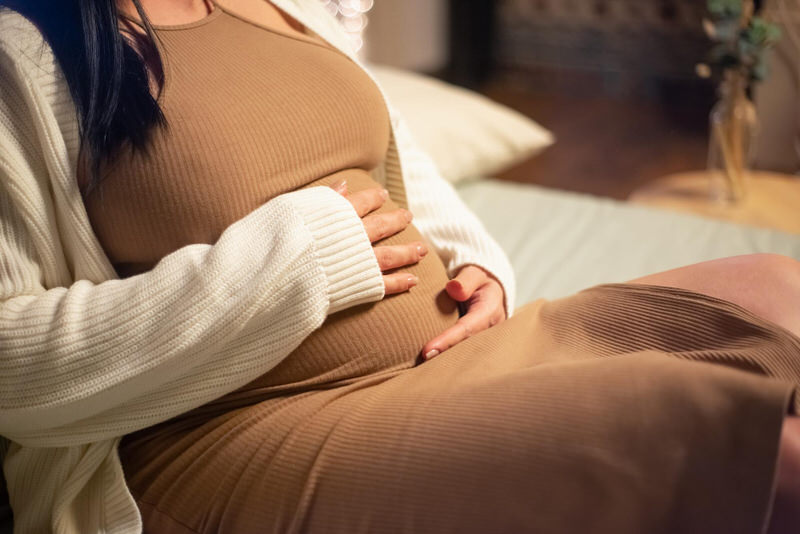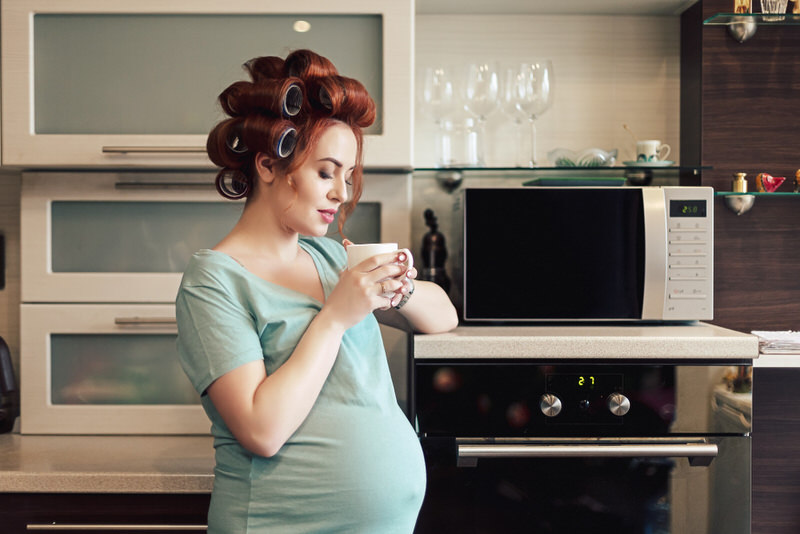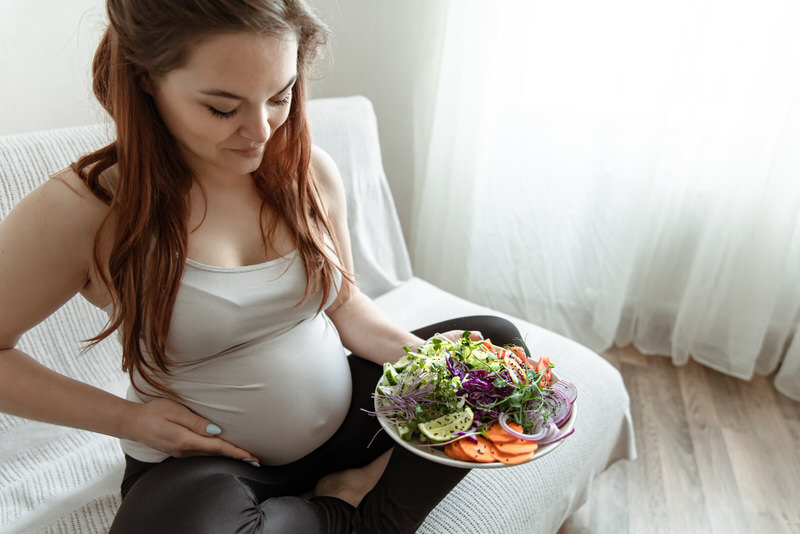Several studies and research show no correlation between consuming caffeine during pregnancy and increased risk of miscarriages, congenital malformations, or fetal growth restrictions. Moderate caffeine consumption of 300 mg daily shouldn’t cause pregnancy or fetus issues. However, there’s a possibility of facing development and growth issues if you consume more than 300 mg of caffeine per day. Limiting caffeine intake is crucial to having a healthy pregnancy.
Caffeine is a powerhouse for some people, helping them wake up in the morning and continue to do their tasks all day.
Millions of people find this jolt of energy appealing and drink multiple cups of coffee throughout the day to keep their energy going.
When it comes to caffeine consumption during pregnancy, many things come to mind. You may start to wonder what foods and beverages are safe to consume. It’s important to consider your daily caffeine intake during this time.
Caffeine is a psychoactive substance and has the potential to affect your pregnancy. But to which extent can caffeine affect your pregnancy?
How much caffeine intake is sufficient? And how can you minimize the effects of caffeine yet still keep your energy up?
Let’s dive into how to navigate your caffeine intake during pregnancy.
How much caffeine am I consuming?
Caffeine consumption isn’t only done by drinking coffee but also by drinking other beverages. About 85% of the total population of the U.S. consumes at least one caffeinated beverage per day.

Knowingly or unknowingly, we all consume caffeine in beverages like coffee, tea, chocolate, cocoa products, soft drinks (like Coke and Pepsi), and energy drinks (like Red Bull and Celsius).
Another way you’re unknowingly consuming caffeine would be from the medications (I bet you didn’t think about that).
There’s an increased use of caffeine in prescription medicines and over-the-counter medications for colds, influenza, headache, menstrual symptoms, weight loss, and central nervous system stimulation.
According to studies and research that I reviewed, caffeine intake among pregnant women studied was 68-51 mg/day on average, and most women were getting their caffeine from drinking their daily tea.
How does caffeine affect my pregnancy?
When you’re consuming caffeine in different ways, it’s absorbed into the body within 45 minutes.
Once absorbed, it peaks in the bloodstream anywhere from 15 minutes to 2 hours post-consumption.

The caffeine from beverages is quickly absorbed in the gut and dissolves in both the body’s water and fat molecules. It’s also quickly able to cross into the brain.
But eating food before consuming any caffeine can delay its absorption rate and effect. This is why drinking coffee on an empty stomach in the morning quickly wakes you up instead of drinking it after a meal.
Caffeine can remain in the blood from 1.5 to 9.5 hours, depending on various factors.
📌 Pregnancy slows the caffeine absorption rate (especially in the late stages of pregnancy) and can take the body up to 10.5 hours or more to eliminate half of the caffeine consumed.
It’s due to the liver enzyme’s decreased activity, which is responsible for caffeine metabolism.
By the first trimester, liver enzyme activity reduces to one-third, and by half in the second trimester.
Caffeine-induced adrenaline, dopamine, and serotonin increase interfere with placental blood flow and hampers transplacental nutrient transport to the fetus.
The caffeine and its metabolites easily cross the placental barrier, and caffeine excretion is delayed to the immaturity of the fetal liver.
How does caffeine affect my baby?
Doctors recommend not exceeding maternal caffeine consumption of more than 300 mg daily.
However, recent recommendations from the European Food Safety Authority (EFSA) and the American Institute of Medicine have limited the amount to 200 mg/day.

Loving coffee and drinking it daily is still okay when you’re not pregnant. However, as you conceive, you must be careful of your daily intake.
It can be problematic and a bit difficult to control the urge, but doing so will only help your little one develop fully without any complications.
A high caffeine intake during pregnancy could lead to problems and issues such as miscarriage, premature birth, or low birth neonatal weight.
Three meta-analyses published between 2014 and 2016 reveal a 7-19% increased risk of miscarriage if there’s an increase of 100-150 mg of caffeine.
The risk further increases by 40% if a large amount of caffeine is consumed.
However, the research is limited due to randomized trials, and results aren’t to be fully trusted.
For premature birth, there is no relationship between caffeine intake during pregnancy and the duration of pregnancy.
But it did show a relationship between caffeine intake during pregnancy and the risk of leukemia in the offspring.
Some researchers believe there’s a link between maternal caffeine intake and the risk of developing attention deficit hyperactivity disorder (ADHD) in children aged 4-11 years. On the other hand, others found no evidence.
A study in Denmark found that a pregnant mother consuming more than 8 cups of coffee a day in the second-trimester result in hyperexcitability in their children.
Caffeine content in beverages
While it’s necessary to be careful of your levels of caffeine consumption, it can become increasingly annoying to keep up with all the different concentrations of caffeine and various sources of caffeine.

Below is a table that contains examples of different beverages and the amount of caffeine they might contain to give you an idea about your daily caffeine consumption and how to reduce it accordingly.
| Caffeine source | Unit | Caffeine per unit, Mg |
|---|---|---|
| Coffee – Brewed – Instant – Decaffeinated instant | 237 mL (1 cup, 8 oz) 237 mL (1 cup, 8 oz) 237 mL (1 cup, 8 oz) | 135 76-106 5 |
| Tea – Average blend – Green – Instant – Decaffeinated | 237 mL (1 cup, 8 oz) 237 mL (1 cup, 8 oz) 237 mL (1 cup, 8 oz) 237 mL (1 cup, 8 oz) | 43 30 15 0 |
| Soft drinks – Cola – Diet cola | 355 mL (1 can, 12 oz) 355 mL (1 can, 12 oz) | 36-46 39-50 |
| Cocoa products – Chocolate milk – Candy (milk chocolate) – Hot cocoa mix | 237 mL (1 cup, 8 oz) 28 g (1 oz) 237 mL (1 envelope, 8 oz) | 8 7 5 |
How to feel energetic without caffeine during pregnancy?
Caffeine is a typical fix for people to get through their day-to-day activities.
Even if you’re not a coffee lover, you might drink other beverages, such as tea or energy drinks, which help you feel awake and get you to focus on your tasks.
However, during pregnancy, there’s a risk to the fetus’s development if you consume too much caffeine.
So then, how do you feel energetic when you can’t have too much caffeine?
Having a cup or two of caffeine daily is fine as long as you keep other caffeine consumption in check. It’s more than enough to get you through your busy day.
But those who drink more than 4 to 5 cups of coffee per day might find adjusting to a life without too much caffeine difficult.
There’re other ways to ensure your energy levels stay high and you feel active all day.
Beverages that you can consume alternative to coffee include:
- Decaf coffee
- Tea or herbal tea
- Alternative lattes
- Water
- Matcha tea
- Chicory coffee
- Smoothies
- Hot cocoa
- Alternative coffee blends
- Kefir
You can only do so much to keep your energy levels up by drinking beverages to help you out.
If you really wish to feel energetic, there’re natural ways to help you stay awake and feel rejuvenated for the entire day.

This includes taking some lifestyle changes such as doing exercises, eating proper nutritional food, staying hydrated, getting enough rest, and avoiding fatty or sugary food.
If you want some healthy energy-boosting food options, then those include:
- Nuts
- Oatmeal
- Mangoes
- Spinach
- Sweet potatoes
- Apples
Include as much as protein-rich foods in your diet that’ll provide you with enough boost throughout the day.
Focus on healthy complex carbohydrates that’ll fulfill your and your baby’s needs.
FAQs
What happens when you drink too much caffeine while pregnant?
Drinking more than 300 mg of caffeine per day can be harmful to your fetus.
Researchers note that caffeine causes blood vessels in the uterus and placenta to constrict, reducing the blood supply to the fetus and inhibiting growth.
It also increases the risk of miscarriage or low birth weight. So, limiting your intake is highly recommended.
Can I drink Coke while pregnant?
Any soft drink you might drink contains some amount of caffeine.
Not just coffee but caffeine is present in different sorts of beverages.
When drinking Coke, remember that a can contains 32 mg of caffeine while a diet Coke contains 42 mg of caffeine.
The caffeine amount is always present in the cans, so you can calculate your daily intake and keep it below 300 mg per day.
Are there benefits to drinking coffee while pregnant?
Drinking coffee during pregnancy has no major benefits, but some studies suggest that consuming small to moderate amounts of it can reduce your risk of gestational diabetes.
That’s true for the second trimester.
Can caffeine make a baby active in the womb?
Caffeine intake is asked to be limited during pregnancy because while your body can handle the caffeine, your fetus hasn’t yet developed the enzymes needed to metabolize caffeine.
So any amount of caffeine you intake will and can cause changes in your baby’s sleep or normal movement patterns in the later stages of pregnancy. It can keep you awake longer and your baby too.
Are congenital disabilities related to caffeine?
Caffeine intake doesn’t show to cause an increased chance for congenital disabilities above the background risk.
Each pregnancy starts with a 3-5% chance of having a congenital disability.
References
- https://www.bannerhealth.com/healthcareblog/advise-me/five-habit-swaps-for-a-healthy-pregnancy
- https://www.ncbi.nlm.nih.gov/pmc/articles/PMC6520888/
- https://www.ncbi.nlm.nih.gov/pmc/articles/PMC3625078/
- https://www.whattoexpect.com/pregnancy/eating-well/week-9/energy-sources.aspx
- https://www.marchofdimes.org/find-support/topics/pregnancy/caffeine-pregnancy#:~:text=Until%20we%20know%20more%20about,much%20caffeine%20you’re%20getting.
- https://www.tommys.org/pregnancy-information/calculators-tools-resources/check-your-caffeine-intake-pregnancy


